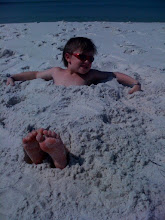When I was 7, I learned the truth about Santa. Sort of.
My friend Emily said Santa was not some jolly old elf who appeared in the night and left presents under the tree, but was really my father who would crawl out of bed and pull toys from the closet. I suppose I knew Emily was telling the truth, but inside I wanted to believe Santa was real.
It was back when my family and I used to eat dinner around the dining room table that I made the announcement to my parents. “I know the truth about Santa. It’s you, Dad. You’re Santa.” My father put his fork down, placed his hands on the table and sighed. “You’re right, kiddo. I am Santa. And it is extremely exhausting getting up late at night, calling together the reindeer, and hitting every house in the world before daylight. But know that you know, perhaps you’ll go to bed a little faster on Christmas Eve so I can leave the house on time.”
It was not the answer I was expecting, but it was a welcome one. I wasn’t ready to let the mystery of Santa fade so quickly. And while I knew deep down that my father wasn’t Santa to the entire planet, it was nice to know that the magic wasn’t gone.
At some point, all kids whose families practice Santa Claus will question the tradition. So, when is the best time to let your kids in on the big secret?
“There’s really no one right time to tell kids that there’s no Santa Claus,” says Glen Elliott, Ph.D. Elliott is an associate professor and the director of the department of child and adolescent psychology at the University of California, San Francisco, in an interview with CNN. “The important thing is to take your cues from the child, and not try to prolong the fantasy for your own enjoyment when they may be ready to give it up.”
Yeah, maybe so. My son will be 6 this Christmas. He hasn’t questioned Santa, but I’m sure that will change now that he is in school. And when he does begin to question the whole idea, I think I’ll go my father’s route and choose the non-denial denial method.

No comments:
Post a Comment